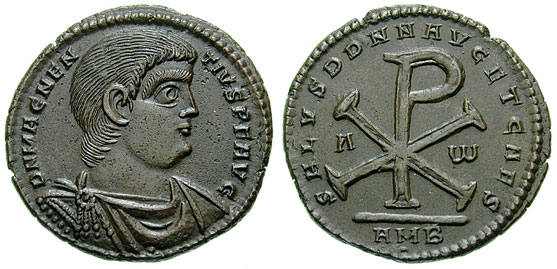“They’re taking Christ out of Christmas!”
“It’s Christmas, not X-Mas!”
That’s what I’ve heard for years, and for a long time I even believed those lines. However, I’ve since changed my mind.
Now, before you dismiss me as some apostate anti-Christian liberal or whatever, hear me out.
First, I do believe that there are some who wish to strip religion from religious holidays and stop people from publicly displaying their faith outside of a church building (e.g., Freedom From Religion Foundation). However, I do not believe there is some anti-Christian global conspiracy.
Second, I do believe that many Christians lack knowledge of their religious heritage and history. The reason for this lack of knowledge is two-fold: church’s don’t teach it and many Christians don’t want to learn it.
Now, that said, let’s look at the Christian war on Christmas.
[bctt tweet=”As Christians, we should fight for souls, not symbols. #1XEvangelism #evangelism” username=”jrothra”]
It’s Christmas, not X-Mas!
Actually, yes and no. It’s both and neither. Allow me to explain.
The abbreviated term “X-mas” can carry two meanings, one Christian, one not. X is often used as a generic placeholder for something else, making it a symbol. If you’ve ever studied algebra then you’re familiar with this symbol, and may even loath it. In basic algebra x symbolizes a number. For example:
3 + x = 5
In this case, x is a symbol for 2. This same principle applies to X-mas.
The letter x is a symbol for something else. The question is what that symbol represents. Or to put it in mathematical terms: we must solve for x.
Some believe the symbol represents some unknown, irreligious idea meant to replace Christ, thus eliminating the religious aspect of the holiday. While many non-believers might agree with this, Christians reveal their ignorance of history by thinking this is the only meaning of x.
The truth is, X-mas is shorthand for Christmas.
Remember learning about Constantine? Maybe not. So, here’s a brief (very brief) history:
Christians in the Roman Empire faced regional and empire-wide persecution because of their beliefs. That ended when Emperor Constantine came to power, claimed to be a Christian, and instituted a form of religious tolerance. Thus, he was seen by many, including historian Eusebius, as a great hero. Constantine claimed that God showed him a symbol that he was to use during his conquests: Chi-Rho.
As you can see below, the Chi-Rho symbol uses what looks like an X and a P intertwined. However, it’s actually the Greek letters chi (Χ) and rho (Ρ). Why these letters? Because they are the first two letters for Christ in Greek: χριστος (xristos).

The X in X-mas uses this same symbolism, but reduces it by one letter from XP to just X. Thus, X, or chi, symbolizes Christ because X is the first letter of that title in Greek.
Nevertheless, despite the fact that X is shorthand for Christ, many Christians still condemn it as anti-Christian.
Christians Need to Learn Christian History
There, I said it. We need to learn our history. The reason we don’t know it is because, like i said, churches don’t teach it and Christians don’t want to learn it. As a result, we end up fighting the wrong wars, condemning things in ignorance, and revealing ourselves to be exactly what the world thinks we are: uneducated ideologues.
When was the last time your church leadership offered an in-depth study on the roots of our faith? Or spent time discussing the Third Century church? Or maybe did a study into Christian symbolism throughout history?
How many churches spend time teaching about historical theology? For example, ever heard of the Arian heresy and how the Early Church fathers refuted it?
What about the origins of the canon of Scripture? Or the Kerygma?
Although these topics might seem boring, they are very useful today. Many — and I would argue nearly all — of the arguments over symbols, doctrine, evangelism, and more that we have today actually predate us by many centuries. Understanding how our forefathers addressed these issues would significantly help us do the same.
So why don’t churches teach more about history? It’s possible the leaders have limited or no knowledge in that field. Another reason is many church members have no real interest in church history; they believe it’s only for seminary students and pastors and stuff.
No, it’s for all of us.
As a result of our collective ignorance and collective laziness, we end up fighting the wrong wars.
[bctt tweet=”Many Christians forget or don’t know that X-mas is shorthand for Christmas. X = Christ. #waronChristmas” username=”jrothra”]
Christians Should Fight for Souls, not Symbols
American Christians are great at playing the victim, claiming anything negative said about them or anything that goes against their personal beliefs is somehow a form of persecution. I’m not the only one to notice this. Truth is, we don’t know real persecution in the United States.
It’s come to the point that anytime someone says something negative about Christianity, or a business does something of which Christians don’t approve (e.g., the Starbucks red cup controversy), or an organization asks people to follow rules they agreed to, then suddenly Christians are being persecuted.
Now, I don’t doubt that there are groups actively trying to silence all forms of Christianity, but like I said at the beginning, there isn’t a massive anti-Christian conspiracy in the United States. However, as a result of this perceived mass persecution, American Christians have taken to the battlefield to fight back against cultural and spiritual decay (though our culture isn’t really any worse than others in history, but I digress).
In the name of Jesus, Christians condemn that which is new as somehow purely secular and evil (nevermind that much of what they cherish was also once new and thus condemned as secular and evil, e.g., the worship wars). Christians, in the name of God and religious freedom, try to silence those with whom they disagree, inferring that those heathens are vile creatures and anti-American.
Within the church, Christians attack and condemn those with whom they have theological disagreements, sometimes outright calling them non-Christian heretics (e.g., the Calvinism debate). In the name of God, many Christians engage in pure idolatry by viewing their own denomination (a man-made creation) as synonymous with the gospel or the “true New Testament church.” They study their denominational heritage, their denominational theology, their denominational distinctiveness, and ensure that all members are denominational loyalists. When someone dares question this behavior, that person is somehow deemed less than Christian.
Christians are at war with social behaviors and with themselves — all in the name of God.
Those are the wrong wars. We should fight for souls, not symbols.
Sadly, however, many Christians are more interested in fighting over opinions, organizations, styles, and symbols than they are over souls.
Jesus called us to make disciples of him, not denominational or doctrinal partisans. We are commanded to go out into the dark places and find others to bring to Jesus, not to play the victim of everything we dislike. We are called to follow in Jesus’ steps to seek and save the lost, not target and destroy those with whom we disagree.
If Christians would spend more time learning history — and I don’t mean Christianized revisionist history that fits into one’s myopic worldview and predetermined narrative — then we’d learn the true meaning of Paul’s admonition: “For our struggle is not against flesh and blood, but against the rulers, against the powers, against the world forces of this darkness, against the spiritual forces of wickedness in the heavenly places” (Eph 6:12).
In other words, our battle is for the souls of men, not for symbols, styles, organizations, and opinions.
Our battle is spiritual, not physical.














